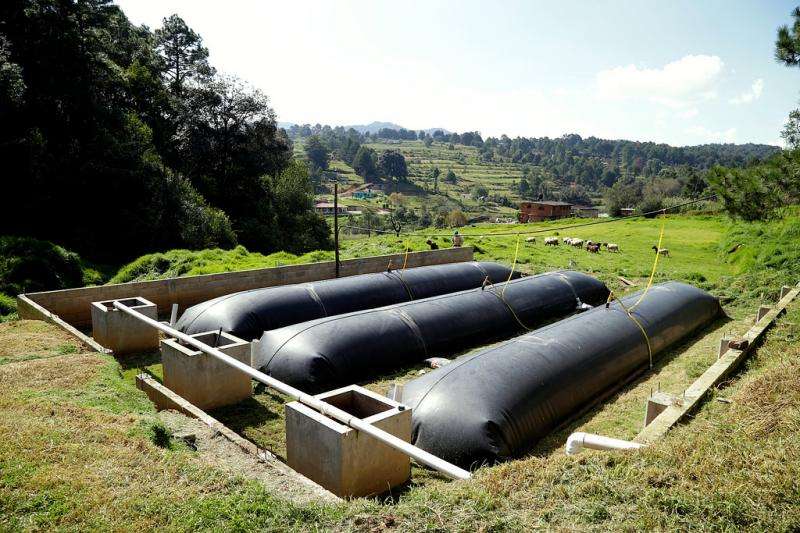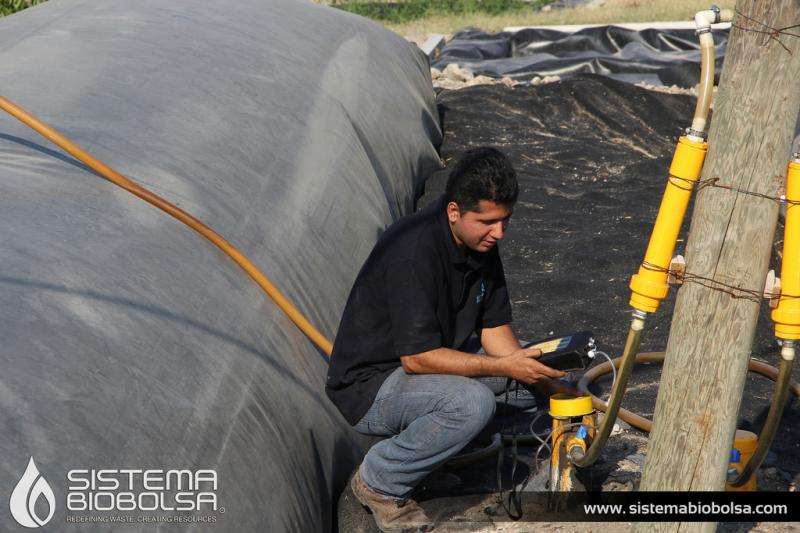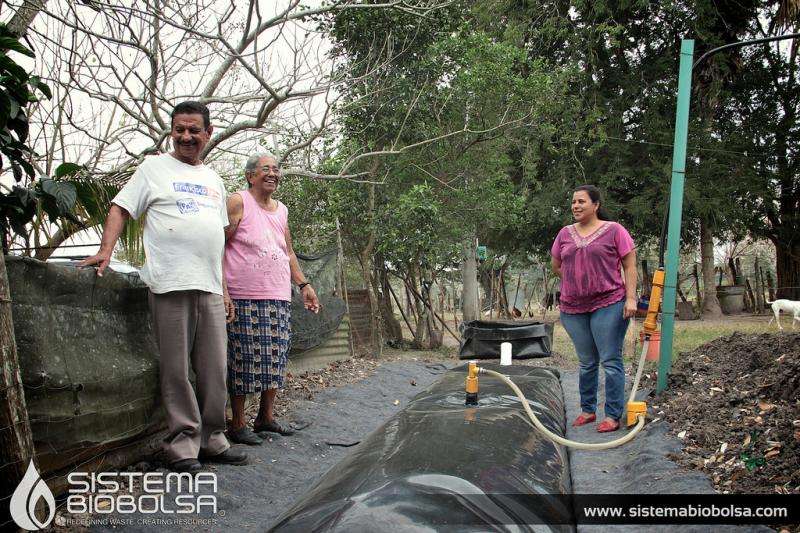The principle of action of a cow's digestive system served as a model to create a container that receives organic waste, mostly livestock manure, where it is mixed with millions of bacteria to obtain natural gas consisting mostly of methane, called biogas, as well as a high-quality bio-fertilizer.
The biodigester, commercially called Biobolsa, transform the waste in a container made of a high-density geomembrane where polyethylene components and bacteria generate gas that is used as fuel for stoves or heaters, and even in the form of electricity.
Alex Eaton, one of the creators, said in an interview that technologies such as the anaerobic Biobolsa have been used for decades in industrialized farms, and researchers now seek to bring its benefits to small and medium producers, which generate 99 percent of the country's food and 80 percent globally.
"We have visited families who have small farms for subsistence, or less than a hundred dairy cows. Those families are without access to credit or financing. They also make up the social fabric of rural areas, as the caretakers of watersheds, land and soil. This is a way of empowering them in climate change, soil management, food safety, water pollution and more."
Eaton explains that his technology consists of a bag of 15 meters, which can contain up to 40,000 liters of liquid and treat one ton waste per day.
The researchers have adapted it to specific needs and created smaller bio-bags of two by two meters, working with 20 kilos of manure. "The system is modular and can interface, it also is deployable and adjustable. On average, the return on investment is seen in a year and a half, and if you consider that the material used for the Biobolsa lasts longer than 20 years, there is much room for profit," he says.
He adds that there are many small producers who are not aware that there are economic and environmental options to leverage what usually is waste—in this case, that manure can generate revenue.
Biobolsa technological transfer includes training and implementation, as well as monitoring its operation and efficiency.
The Mexican anaerobic technology has had support from various foundations and government institutions for its development and implementation, which have provided partial subsidies to stakeholders. "Today we manage a credit fund with zero rate for small producers to participate," says the ecologist.
Biobolsa has received several international awards, both scientific as for social entrepreneurship, among others, the Network Business in Development (BiD Network), of Holland, which gave an award for 10,000 euros which served to give a major boost to the company.
"We have improved the process and have a number of engines for generating electricity. We already have a contract to produce light for the electrical network of the Federal Electricity Commission in Cuernavaca (south of Mexico City), through interconnection with biodigesters to produce five, 10 or 15 kilowatts.
"We want to impact four million homes that, we estimate, could use Biobolsa today in Mexico" says Eaton.
Provided by Investigación y Desarrollo
























